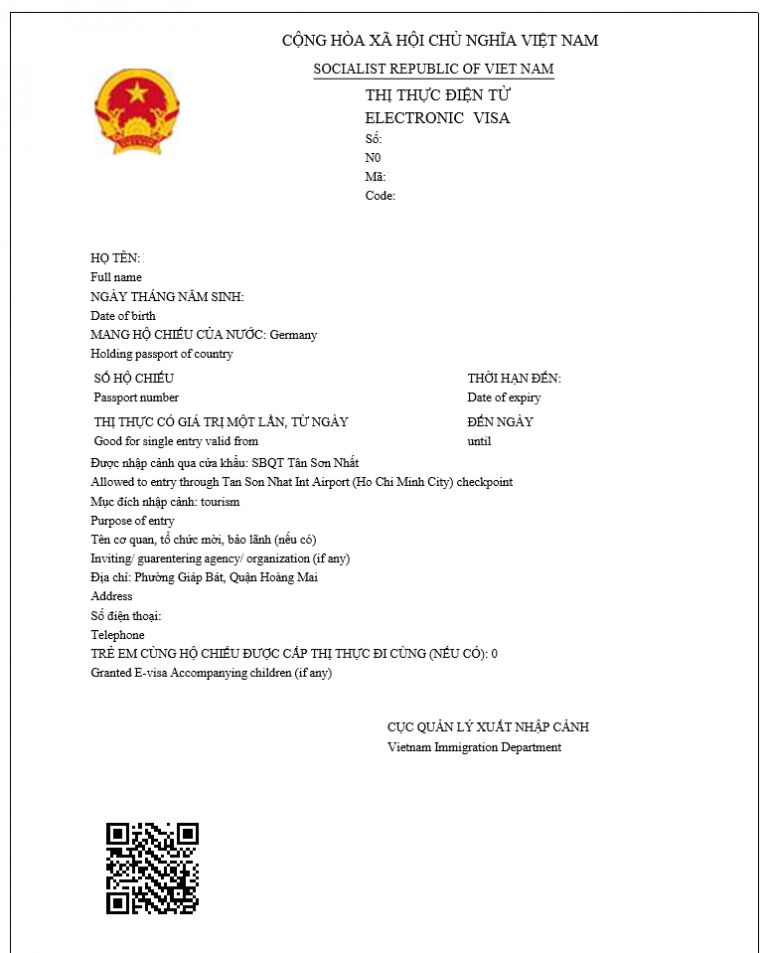If you’re transiting through Vietnam
Transiting is when you pass through one country on the way to your final destination.
If you are transiting from an international flight to a domestic flight at Hanoi or Ho Chi Minh City airports, you will be required to pass through immigration and enter Vietnam, even if your final destination is outside of Vietnam.
Check with your airline before departing.
Check your passport and travel documents before you travel
Passport validity
If you are visiting Vietnam, your passport should be valid for 6 months from the date you arrive.
A number of British nationals have been refused entry and exit due to their passport being damaged. Make sure your passport is in good condition before arriving in Vietnam. Being refused entry can result in significant cost and a long stay at the airport.
Check with your travel provider to make sure your passport and other travel documents meet their requirements.

Visas
If you want to stay in Vietnam, you should only do so legally and with the right visa and permission to stay.
British Nationals can enter Vietnam for up to 15 days for tourism, transit and business (but not paid or voluntary work) without needing to apply for a visa.
If you wish to remain in Vietnam as a tourist for longer than 15 days, there are two visa options:
- Book a tour with a travel agent in Vietnam requesting that the agent applies for a visa pre-approval letter for your travel to Vietnam. On receipt of the pre-approval letter by the Vietnamese Embassy your agent will inform you when to collect your visa from the Embassy;
- Apply for an e-visa online through the online portal. E-visas are issued for stays of up to 30 days, single entry only. Use of the e-visa is limited to certain entry/exit points which you must select at the time of application. You cannot make any amendments once your application is completed.
If you apply for the 30 day e-visa while in Vietnam and are successful, you must leave the country before your initial 15 day stay expires to validate the 30 day e-visa.

If you are travelling to Vietnam for business for longer than 15 days, or are an expert and/ or a high-skilled worker you will need to contact your business partner/ employer/ sponsor in Vietnam to work with relevant authorities of Vietnam to arrange the issuance of your visa.
From 15 January 2022, those who entered Vietnam on visa waivers, e-visas or tourist visas from 1 March 2020 are no longer entitled to an automatic visa extension. If you now plan to leave Vietnam permanently and entered before 1 March 2020 without undergoing mandatory quarantine or treatment for COVID-19, you should contact your local immigration office in order to apply for your exit visa and pay any overstay fees. Going to the airport without an exit visa will result in you being denied boarding for your flight.
Vietnamese visit visas are issued for a limited duration, printed on the visa, and on the basis that visitors must leave on or before the date of expiry. Those who come to Vietnam to work are required to apply for a work visa/ permit. You should check the visa validity and conditions carefully. Overstaying your Vietnamese visit visa or working illegally is a serious matter and you may be delayed from travel until a fine is paid, deported and may be prevented from visiting Vietnam in the future.
